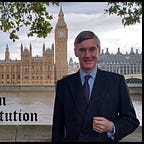There is currently a proposal to simplify Parliamentary language to make it more understandable. It is unlikely to make much difference, as all specialisations have their own language, which is easily understood by those who use it every day, but confusing to outsiders.
However, there is one term that is especially confusing, and that is a ‘Private Member's Bill’, because it refers to a Public Bill, not a Private Bill, which is something entirely different.
A Private Member's Bill is one introduced by a backbencher, who is a ‘private’ member as opposed to a government member. It is the term used for non-ministers from the 18th century, while the location-based term ‘backbencher’ became more common in the 20th century. Nonetheless, the Bill will be public, that is to say, one that affects the nation at large.
Private Bills, on the other hand, are different. Erskine May describes them as “legislation of a specific kind for conferring particular powers or benefits on any person or body of persons - including individuals, local authorities, companies, or corporations - in addition to or in conflict with the general law”.
Most of the time, political interest is focused on Public Bills. General taxation or welfare reforms are examples of matters that will be covered by them. They are the meat and drink of political discourse. Private Bills are usually obscure and most commonly cover issues such as council bylaws, or tramways.
Some Bills have elements of general law as well as specific law, and these are hybrid and subject to special procedures, and include the law made with regard to HS2, which had a general effect, but also a specific one on particular landowners.
Public Bills and Private Bills are each subject to their own set of Standing Orders. Most MPs will be familiar with those for public business, the length of time for divisions, order in the chamber, the time available for debate and such like are all set out in the House's Standing Orders for public business.
Many MPs, on the other hand, would have no familiarity with the Standing Orders for private business and, although I had a copy while an MP, I looked at them as a curiosity rather than as an important part of my daily work. My primary interest in them was historic rather than as a useful tool for a government. However, they could be more helpful than that; indeed, they could be the answer to one of the biggest obstacles to economic growth, the nation's sclerotic planning system.













